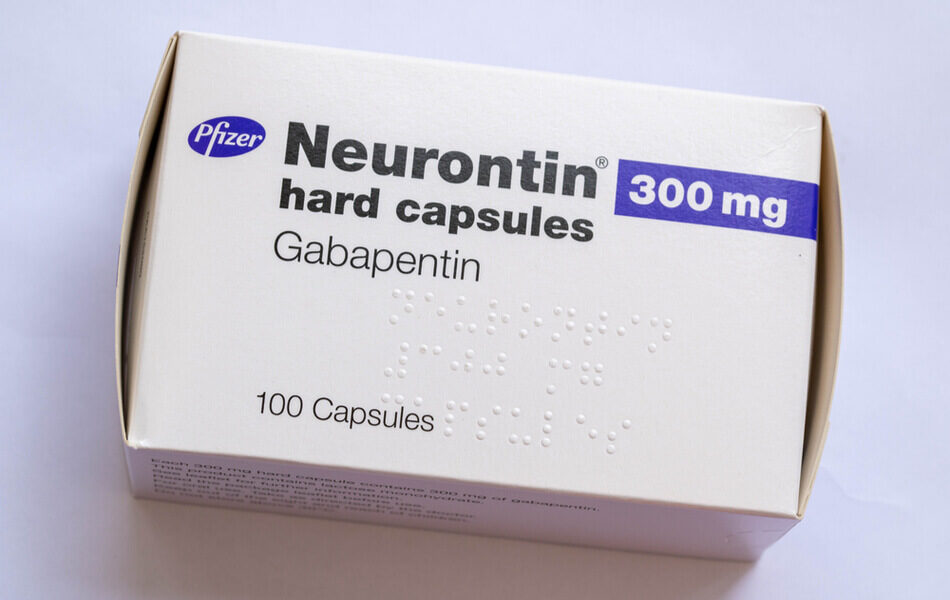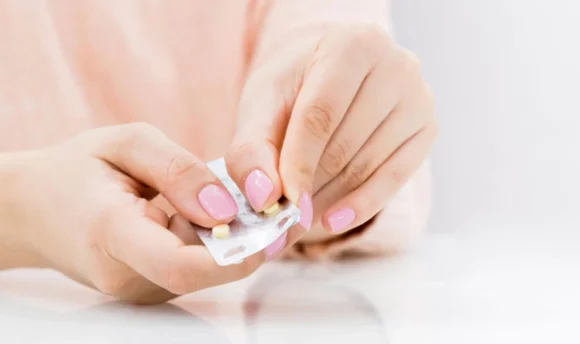Does Gabapentin Cause Weight Gain? Drug Explained
If you’ve started taking gabapentin and simultaneously noticed a weight increase, you might wonder if there is a connection. This article covers gabapentin in detail and discusses whether the medication can, in fact, make you gain weight.

There is always the potential for unwanted symptoms when taking prescription drugs, from gastrointestinal issues to mood changes.
One of the most common and undesirable outcomes accompanying certain medicines is weight gain. As most of us typically want to drop a few pounds, gaining weight from our meds can be a shock.
You may have heard that treatment for mood disorders, diabetes, and high blood pressure can add unwanted pounds, but you might be unfamiliar with other medications, such as those that treat epilepsy and nerve pain.
As a popular prescription drug in the US for the treatment of epilepsy, restless leg syndrome, and neuropathic pain, you might be wondering if gabapentin can change your body weight.
Keep reading as we cover everything you need to know about the relationship between gabapentin and weight gain.
Does Gabapentin Cause Weight Gain?
Weight gain from gabapentin is possible, but it is a rare side effect. Weight gain may occur in a small number of people taking gabapentin, likely due to factors including fatigue and an increased appetite.
Common gabapentin side effects that may affect many patients include dizziness, drowsiness, nausea, diarrhea, and mood changes.
Weight gain occurred in patients receiving high doses of gabapentin as therapy for seizures. However, some patients had no change, and a small percentage experienced weight loss.
If weight gain is a concern, there are some measures you can follow to avoid gaining weight while using this medication.
How Gabapentin Causes Weight Gain
Although it is not one of the most common side effects, gabapentin (also known by brand names Neurontin and Gralise) can contribute to weight gain in some patients, especially at higher doses.
It’s helpful to understand why this might happen before you start taking gabapentin medication to know how to cope should you experience this effect.
Here are 3 reasons why your baseline weight might change.
#1 It can make you hungry
An increased appetite means you feel hungrier than usual. It’s normal to want to eat more than you usually would to eliminate hunger pangs and satisfy cravings. This, of course, can lead to unwanted weight gain.
#2 It may cause fatigue
Drowsiness is one of the most common side effects of the drug. The anti-seizure medication alters brain activity by increasing the levels of gamma-aminobutyric acid (GABA), an inhibitory neurotransmitter that blocks brain signals.
The sleepiness effect is likely more prevalent when you begin taking gabapentin and may ease off as you adjust to the drug.
If you’re frequently feeling tired, sleepy, and dizzy, it can negatively impact your mood. You may lack motivation, leading you to miss out on your usual physical activity and increasing the risk of putting on weight.
A more sedentary lifestyle may cause your metabolism to slow down as you decrease the number of calories you burn each day.
If your lethargy doesn’t wear off, it can wind up causing fatigue. It’s worth checking in with your doctor as they may be able to tweak the dose or provide you with a different medication.
#3 It may cause water retention
Water retention, or edema, can cause physical bloating and swelling, notably in the hands, arms, feet, and legs, causing you to gain weight.
Peripheral edema has been known to occur as a potential adverse effect of gabapentin, while fluid retention occurred in 1 in 10 people taking gabapentin.
How to Avoid Weight Gain on Gabapentin
If you’re worried that this drug is causing you to gain weight, here are 6 steps you can take to prevent it.
#1 Eat smaller portions
Eating larger portions can quickly contribute to weight gain. When cooking and serving your meals, eat smaller portions to combat the urge to overeat. This is an essential weight loss tip, but it also aids weight management and promotes a more mindful relationship with food.
#2 Opt for a balanced diet
Eating a clean diet rich in whole foods and essential nutrients is a top habit to form for weight management. If you begin to gain weight, managing what you eat is critical for taking control of the dreaded side effect.
A balanced diet includes an adequate macros ratio of healthy fats, protein, and carbs. Limit the foods that don’t benefit your health, drink plenty of water, and if you’re hungrier than usual, opt for low-calorie snacks that won’t impact your weight.
#3 Avoid foods with added sugar
While the prescribed drug can potentially trigger sugar cravings, you should always opt out of eating refined foods with added sugar. Consuming too much added sugar significantly increases your risk of gaining pounds and chronic conditions, including diabetes, heart disease, and obesity.
#4 Exercise more
Increasing your exercise regimen will ensure you continue to burn any extra calories you may have consumed while taking the drug due to an overactive appetite. Exercising can help you lose weight, too, if that’s your goal.
#5 Avoid alcohol
Alcohol and Neurontin do not mix. You should avoid combining the two, as each depresses the nervous system, worsening the adverse effects of sleepiness and dizziness.
Aside from the dangers, alcohol is high in calories, prevents you from burning fat, and tricks you into thinking you’re hungry.
#6 Talk to your doctor
It’s essential to consult your doctor if you are concerned about weight gain.
They may suggest alternative options, such as decreasing your dose, slowly increasing it, or switching to a different drug.
FAQs
Bloating is one of the less common unwanted side effects of gabapentin and may result from fluid retention.
Yes, gabapentin can make some users feel hungry as it can cause your appetite to increase.
Gabapentin can cause water retention in a small number of users.
A Word From Our Nutritionist
Gabapentin, also known as Neurontin, is a drug typically prescribed to treat epileptic seizures, postherpetic neuralgia, and some forms of nerve pain.
As with all medications, it’s possible to have adverse reactions. In seemingly rare cases, gabapentin treatment may cause people to gain weight due to an accumulation of factors, including a greater appetite, increased cravings, and a slower metabolism.
Other side effects include drowsiness, fatigue, and lack of motivation.
You can avoid weight gain by eating a healthy diet, exercising regularly, and avoiding refined foods. It’s also worth speaking to your doctor about managing your health if you’re using the drug for long periods.
Conclusion
Unfortunately, gabapentin can lead some patients to gain weight. However, the occurrence is considered rare and is unlikely to affect most people.
The good news is that you can elude weight gain by leading a healthy lifestyle that combines a balanced diet with regular physical activity. Always speak to your doctor if you are concerned about taking your prescribed drug, especially if you plan to take other medications simultaneously.

















































 Select your language:
Select your language: 








